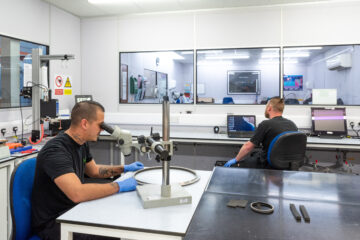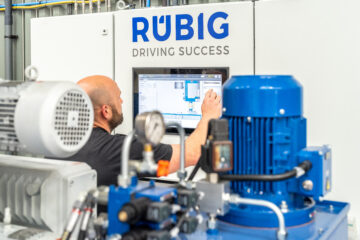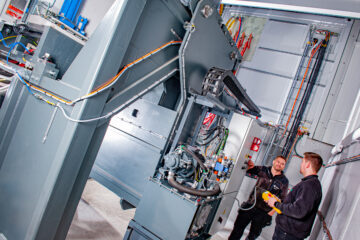Near net shape parts from Wallwork’s new HIP Centre
Representing half of a planned £20m investment program over the next five years, Wallwork Group’s brand spanking new Hot Isostatic Pressing (HIP) Centre, recently opened at its Bury, Manchester headquarters, is truly state-of-the art. Dave Tudor met up with group director Simeon Collins recently for a closer look at the new arrival and the company’s range of services from a wider perspective.
The Wallwork Group is a specialist heat treatment and hard coating company with a long, distinguished pedigree. Formed in 1959 by Robert Wallwork, the company remains a family business today. Since its inception, growth has been steady, sustained and unrelenting – due in large part to ongoing investment in staff, equipment and technology from day one.
The Group operates across four sites strategically spread across the UK. It employs just shy of 250 people and enjoys a healthy, prosperous annual turnover of around £30m – a significant proportion of which is invested back into the business. Wallwork is the largest independent heat treatment company in the UK.
The heat treatment and coating of metallic materials to improve hardness, toughness and wear resistance characteristics is a highly specialised area – and there really aren’t too many companies around that live and breathe it like Wallwork does.
A good example of a typical component is a gear: it needs hard teeth so it doesn’t wear, with a tough core and possibly a bit of corrosion resistance thrown in for good measure. Heat treatment effectively prepares the condition of the material to suit a particular application by changing its properties. Coatings offer similar physical enhancements. It’s all about prolonging the life and increasing the performance of components.
But at the end of the day, it’s all underpinned by science so processes and equipment need to be top notch. Furnaces (particularly vacuum variants) for example need to be conditioned correctly, accurate, clean and well maintained with the ability to heat uniformly. Overheat a component and it could become brittle. Go the opposite way and it may be too soft and wear quickly. Wallwork has extensive lab, R&D and inspection facilities at its disposal for developing new processes and formulations and ensuring the right quality levels are maintained.
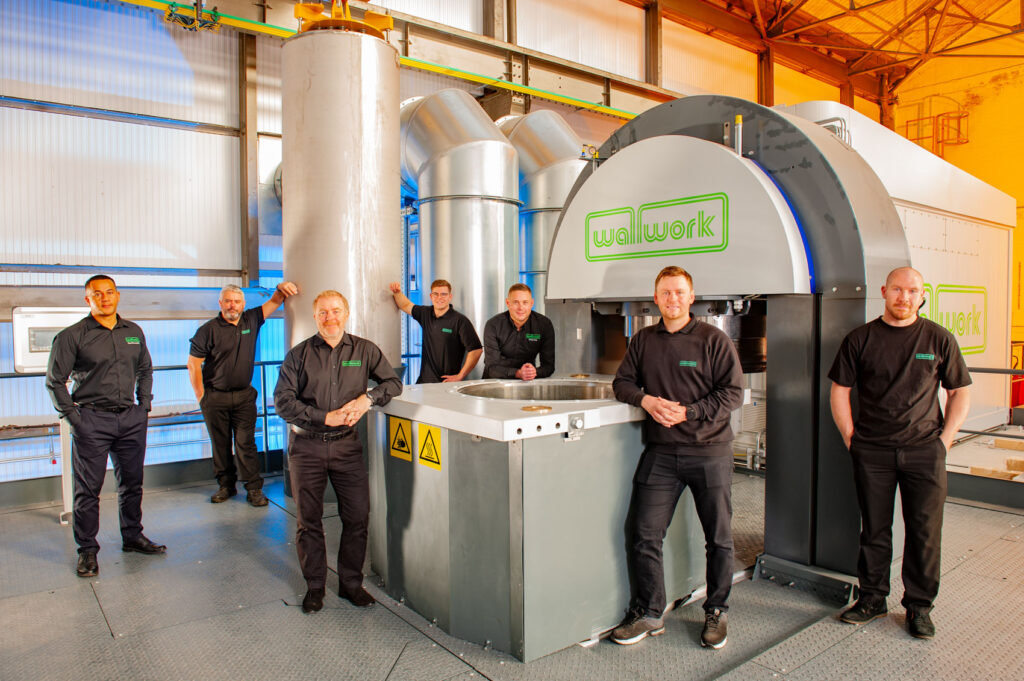
Fantastic four
Wallwork’s four facilities are located in Manchester (Bury), Birmingham, Newcastle and Cambridge. Wallwork Group director, Simeon Collins provides some background: “When Robert Wallwork started the company in 1959 it was located in Stalybridge but in 1978 the business moved to its current location here in Bury,” he explains.
“The Birmingham facility followed in 1989. This was a logical choice for offering heat treatment services simply because of its high density of local engineering companies in the area. In 1997, we diversified completely by acquiring Tecvac – essentially a builder of Physical Vapour Deposition (PVD) coating machines but also a provider of PVD coating services on a subcontract basis.
“We saw the acquisition as a real value add,” Mr Collins recalls. “After acquiring Tecvac, we opened a purpose-built site in Cambridge which also gave us access to customers in the south of England. Today the Cambridge site builds bespoke PVD coating machines that we use in house for our own subcontract coating services.
“We also work closely with a number of universities and academic establishments who use the machines extensively for their own research and development purposes. No two machines are ever the same and they’re highly specialised. The Cambridge site also offers heat treatment services such as vacuum brazing and plasma nitriding.”
PVD coatings are commonly used on parts such as compressor blades to provide wear resistance. In aerospace applications such as jet engines for example, this helps the blade keep its original shape for longer – which in turn optimises blade performance and therefore the overall fuel efficiency of the aircraft.
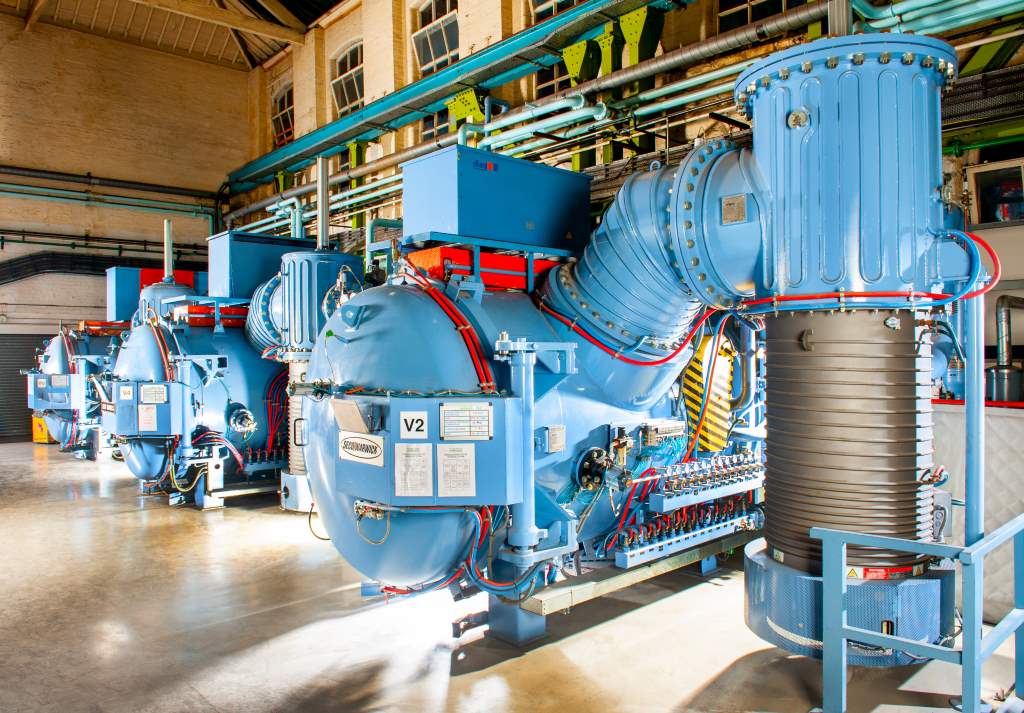
In 2017, Wallwork set up its Newcastle site to offer heat treatment services to customers north of the border in Scotland, expanding its geographical reach even further. A key sector in the region is oil and gas, but the company has enjoyed success in other areas like construction.
“There are some fundamental differences operationally between our sites,” Mr Collins says. “Process wise, Bury and Birmingham are pretty identical offering predominantly vacuum heat treatment, sealed quench (case hardening), gas nitriding and salt baths.
“Cambridge takes care of subcontract PVD coating, plasma nitriding (a low temperature, no quench, hardening process that can be used on exotic materials with minimal distortion), and vacuum brazing (joining dissimilar metals in a vacuum so no oxides or heat affected zones). Coatings are often bespoke formulations so Cambridge is also where our lab and application development facilities are located.
“Newcastle is similar to Bury, but it has deep pits which can accommodate shafts for example up to 1.7m long and large gears.”
Delivering the goods
All four Wallwork sites work closely together. Indeed, interaction is positively encouraged between members of staff. It’s called a group for a reason.
A key component of this collaborative approach is the company’s fleet of 60 vehicles which are used not only to transport parts between the various Wallwork sites for different processes, but also for the collection and return delivery of components to and from customers after heat treatment and/or coating.
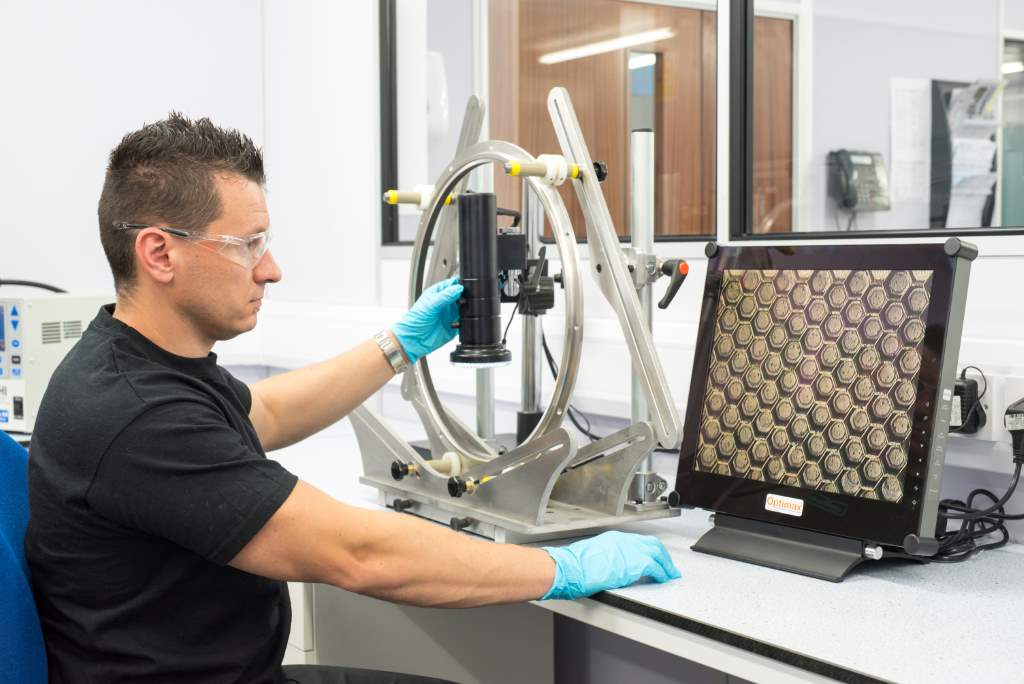
Anything that alleviates logistical headaches for customers has got to be a good thing. In this regard, with vehicles ranging from transit vans to 11.5 tons, Wallwork offers a slick, end to end service. Simeon Collins is in no doubt that going the extra mile – literally – is a true differentiator in the marketplace.
As well as the four main facilities, there are also transport depots established in Yeovil and Crawley in the south to offer true nationwide coverage.
Demanding industries
For the past two decades or so, aerospace has been a key market for Wallwork – and as everyone involved in the supply chain knows only too well, success often hinges on getting the right approvals and accreditations in place as well as operating tightly controlled processes.
“Maintaining our strong relationships with aerospace companies takes a lot of investment but the sector represents over 30% of our total business so it’s a key industry for us,” Mr Collins affirms. “Both our Bury and Cambridge sites are Nadcap approved for all processes – coatings, vacuum brazing and vacuum heat treatment – and the Birmingham facility is AS9100 accredited.
“We’re audited regularly by the likes of Rolls-Royce, BAE, Boeing, Hawker, Leonardo, Airbus, Collins Aerospace, Moog, Meggitt and Bombardier as well as by a number of leading F1 teams, medical and pharmaceutical companies. Our response and delivery times are just as important as the quality of the products and services we provide.”
Other key, but no less demanding industries for Wallwork are motorsport and medical. With the former, its Diamolith DLC, Nitron MC and Nitron CA coatings allow race engines to run hotter, faster and with lower frictional losses resulting in less wear and corrosion.
In medical applications, coatings such as Nitron CrN and Nitron O are used extensively in hip implants and procedural instruments (for greater edge retention) for example, resulting in longer implant life, less friction, less toxic wear debris and improved biocompatibility.
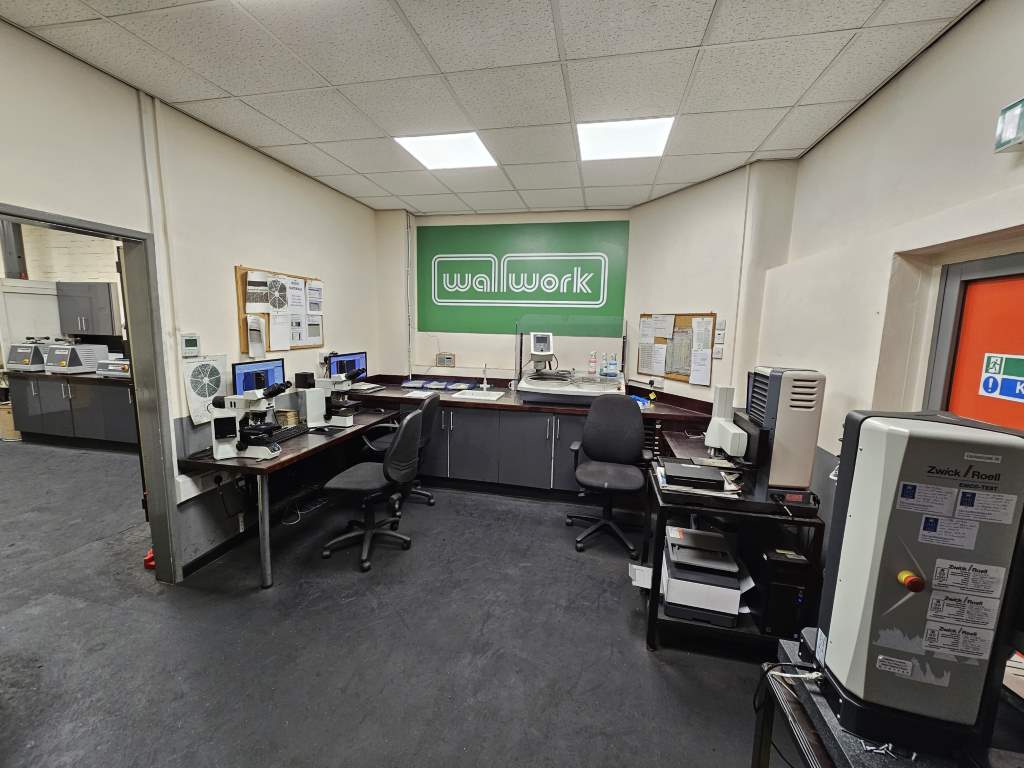
Wallwork even has its own castings foundry – Cast Alloys. Simeon Collins explains: “Cast Alloys is a small subcontract sand casting service we offer to customers – but we also use it extensively in-house to produce highly heat resistant baseplates and/or fixtures – mainly in nickel/chrome – on which to mount the workpieces while they’re in the furnace. As you can imagine, with a business as large as ours, demand for these castings is pretty high. And we can recycle them.”
Densification across the nation
We’ve seen that continuous investment is a cornerstone of Wallwork’s success and nowhere is this more apparent than with the company’s recent investment in a Hot Isostatic Pressing (HIP) facility. Mr Collins believes this will be a significant growth area for the company moving forward. The investment was driven largely by customer demand.
In 2020, in conjunction with Swedish designer, manufacturer and installer of high-pressure systems Quintus Technologies, Wallwork began the process of setting up a 2,500m², £10m investment HIP facility which is located on, but separate to, the Bury site.
The first HIP machine, capable of operating at pressures from 40 to 207Mpa and temperatures up to 1,250°C is now up and running. Over the next five years, the plan is to add a further two machines as part of a total £20m investment. The foundations for the second machine are already in place.
So what exactly is HIP? Mr Collins elaborates: “HIP is all about densification,” he explains. “When you cast or 3D print (from powder) a metal product and cut it down the middle, it will invariably contain porosity which are points of weakness.
“So you put the casting (or the metal powder in its can mould) into a hot isostatic press, seal it and take the temperature up to around 1,200°C (depending on the material) to make the material malleable. We then pump in argon at 105-140Mpa to create high pressure which essentially densifies – or crushes – the part, effectively removing any porosity and imperfections in the process. With metal powder, the end result is a solid piece of metal.”
Importantly, the ability to improve material fatigue properties, ductility, structural integrity and fracture toughness as well as removing porosity applies to additively manufactured metal powder parts, castings, forgings and subtractive engineering components.
Components with complex geometries can also be processed to near net shape, saving customers additional machining steps and cost.
